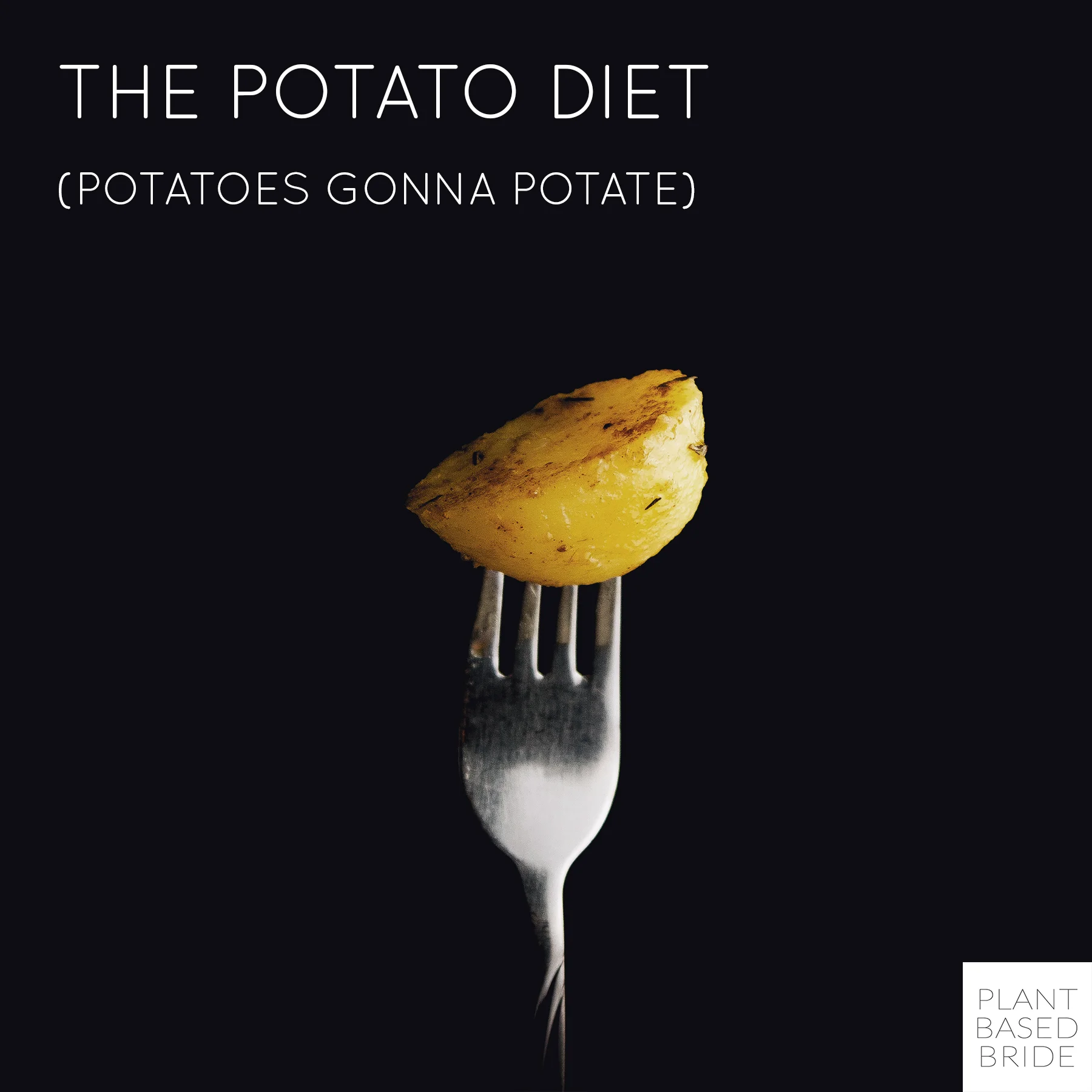Should You Worry About Your Body's pH?
Have you ever heard someone talk about alkalizing their body? Or avoiding a food because it's too acidic? Did you think to yourself: "Wow, that health-nut has reached a new level of crazy!"? There was a time I would have agreed with you, that spending time worrying about your body's pH was going too far down the road to orthorexia, but after more time and research I've discovered that maintaining a balanced pH should be more than a blip on your radar if you're looking to create an environment for optimal health. (Am I the only one who just imagined a futuristic, sleek, blinking health-radar? I am? Never mind, then...) And aren't we all looking for a way to live a longer, happier, disease-free life?
What's pH again?
If it's been a while since high school, you may have forgotten all about pH. And that's ok! (That's what I'm here for.) pH measures the hydrogen ion concentration of a given solution. High concentrations of hydrogen ions result in a low pH rating and low concentrations of hydrogen ions result in high pH rating. If that sounds backwards to you, you aren't alone. But it all makes sense scientifically, I promise!
The pH scale ranges from 0 to 14, where 0 is the most acidic, 7 is neutral, and 14 is the most basic (or alkaline). See below for examples of different substances and their pH value.
What is your body's pH?
The optimal pH for human blood and tissues is in a very small range, between 7.35 and 7.45 on the pH scale (slightly alkaline). Unfortunately, the average modern diet results in a slightly acidic body of around 6.6 or lower. While 7.4 is the perfect pH level for many tissues in the body, there are some areas that require different levels to properly carry out their function. As you can see in the graphic above, stomach acid is a 1 on the scale, requiring tissue ranging from 1.35-3.5 on the inside layers to 6.9 on the outer layers of the stomach to prevent injury. We see a similar phenomenon in the vagina, where a pH of less than 4.7 protects against microbial overgrowth.
When we are born our bodies are perfectly balanced, but as we grow and make our own food choices our pH shifts. Unfortunately for us, any shift away from the small range of ideal pH values results in negative effects on our health.
Why is body pH important?
The human body has evolved to exist in an alkaline state. It can't thrive in an acidic one, and when it remains in an acidic state for too long many health problems start to develop. An acidic body causes insulin sensitivity (which leads to weight gain), reduces the amount of oxygen delivered to cells, accumulates cholesterol in arteries, causes tissues to regenerate more slowly (resulting in early signs of aging), and backs up the body's elimination system (keeping toxins in the body for longer than they should be). Luckily for us, there are controls in the human body that resist swinging too far in either direction. But even a small change in either direction can cause unpleasant side-effects.
The acidic body
The average person of today eats a diet low in magnesium, potassium, and fibre while rich in saturated fat, simple sugars, and sodium. This kind of diet can result in metabolic acidosis (an acidic body). The effect is exaggerated in the aging population, as there is a gradual loss of renal acid-base regulatory function over time (the kidneys lose their ability to balance the body's pH effectively).
Why should you care about metabolic acidosis? Because it can lead to osteoporosis as well as fatigue, headaches, insomnia, breathing difficulties, heart palpitations, hot and dry skin on the hands and feet, increased stress and anxiety, inflammation (which can result in arthritis), and supported growth of abnormal cells. To explain how acidosis can lead to osteoporosis, let me quote my post Building Strong Bones with Plants:
"So what happens when the animal protein in milk lowers our pH below the optimal level? Your body, recognizing the need to alkalize, goes in search of a substance to do the job. It finds phosphate, which is great at neutralizing strong acids and bases. And where does your body find phosphate? In the calcium phosphate salts that are the structural component of your bones and teeth. The body pulls the calcium phosphate stored in the bones out into the blood to alkalize it, using the phosphate for that purpose and excreting the calcium in the urine.
That's right, when you eat or drink animal products, including cow's milk, you cause calcium to be pulled from your bones and peed out.
Over time, this drawing on calcium phosphate reserves to neutralize the acid-forming effect of animal protein can lead to structural weakness in your bones and teeth (or osteoporosis). Not only that; increasing your calcium excretion through the genito-urinary system can raise your risk of developing calcium-rich kidney stones."
It is estimated that the amount of calcium lost in urine in humans eating the average modern diet over 20 years could be as much as 480gm, or half the skeletal mass of calcium. While urinary calcium loss is not a direct indicator of osteoporosis, this number is staggering.
Are you starting to worry about your pH yet?
The alkaline body
With an interest in keeping perspective, I feel it's important to mention that while an acidic body is not healthy, neither is a body that is too alkaline. Alkalosis (a body with a pH over 7.45) can cause confusion, light headedness, nausea, and twitching or numbness of the muscles.
Which foods promote a healthy pH in the body?
As you can see from this list, all of the alkalizing foods are vegan, while all animal products cause acid formation in the body. Choosing a vegan diet automatically shifts your pH closer to ideal by way of eliminating animal protein, and reducing your consumption of grains, simple sugars, alcohol, and processed foods will improve your pH balance even further! Hopefully this post has demystified body pH for you and shown you how very easy it is to improve your pH balance, especially on a plant based diet!
Until next time,
Have any questions or opinions about pH? Speak your mind in the comments below or on social media!
Are you following me? Find me on Facebook, Twitter, Instagram, and Pinterest!
Don't forget to subscribe to the Plant Based Bride newsletter below the comment section for updates and a free goal setting printable!

























